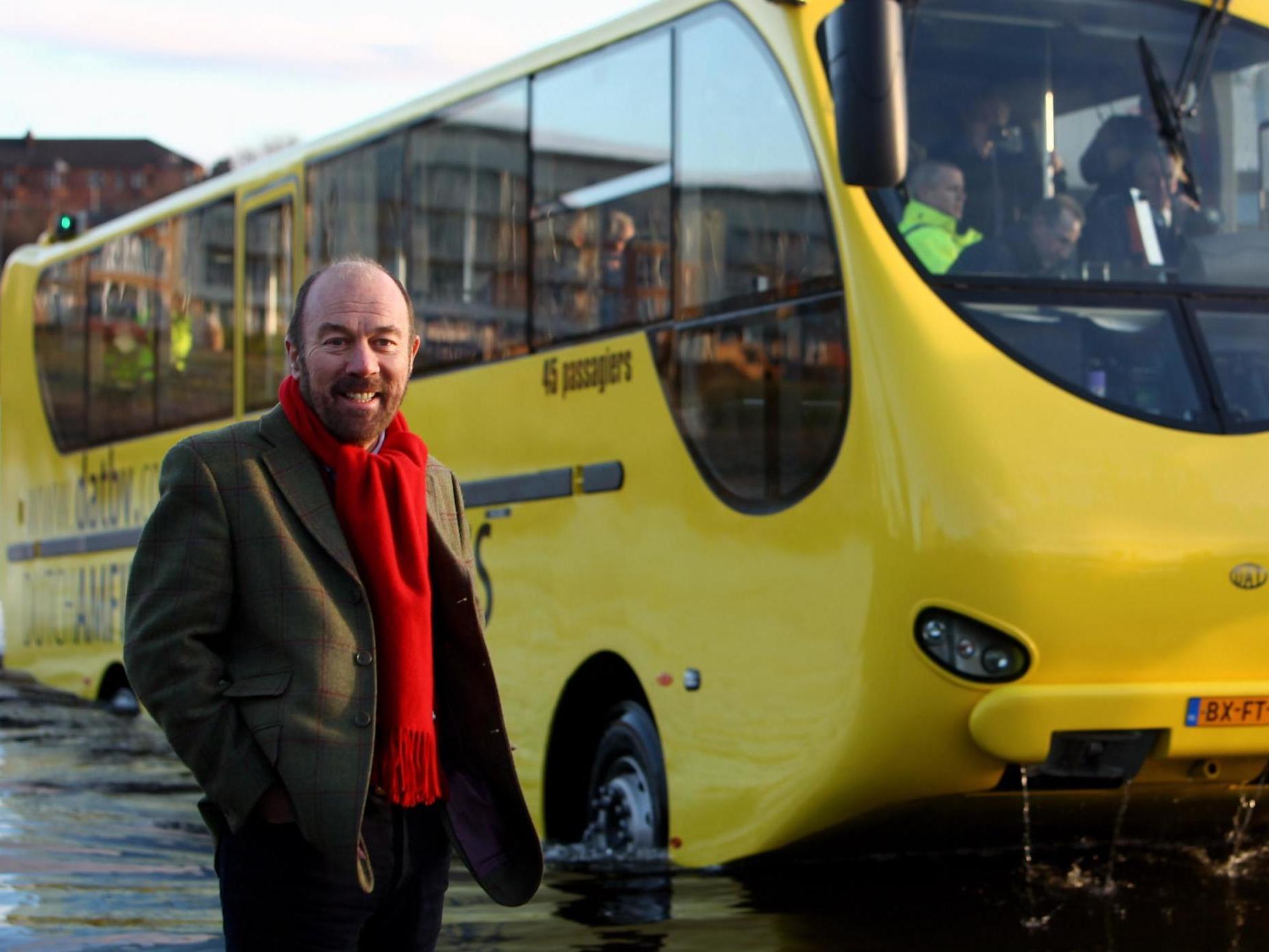Turner Prize criticised for accepting sponsorship from anti-gay rights campaigner
Stagecoach chairman Brian Souter previously bankrolled a campaign to keep Section 28

The Turner Prize has come under scrutiny for accepting sponsorship from the bus operator Stagecoach, the founder of which has previously campaigned against gay marriage.
Brian Souter also bankrolled a campaign to keep Section 28, the law which banned teachers and pupils from discussing homosexuality in schools.
The businessman previously said gay marriage would take Britain into “a Babylonian-Greek society where sex is primarily a recreational activity”.
During a press conference coinciding with the release of this year’s shortlist, the organisers of the Turner Prize were questioned about why Stagecoach South East was allowed to sponsor the award.
After an awkward silence, Tate Britain director Alex Farquharson explained that the choice of sponsor was down to the venue: the Turner Contemporary in Margate.
Victoria Pomery, director of the venue, said Stagecoach South East – which provides local buses – was good for the area, adding: “I think the service that they provide is first rate.”
Pressed further, she added: “We have to take on board a whole range of issues when deciding our sponsorship. In this instance we decided that the role that the company plays in the area is very important.”
Mr Farquharson later told the media: “I think that’s probably enough on sponsors.”
Last year’s Turner Prize was won by Charlotte Prodger with her film, shot on an iPhone, about “queer identity” and her experience of coming out as gay in rural Scotland.
The spotlight has also been thrown on other arts donations in recent months.
In March, a £1m donation from The Sackler Trust to the National Portrait Gallery was cancelled, amid the opioid crisis in the US.
Following the press conference today, Stagecoach issued a statement, saying it “does not tolerate discrimination or harassment of any kind based on disability, gender, gender reassignment, sexual orientation, religion, belief, age, nationality, race or ethnic origin.
“Our Stagecoach culture values transparency, diversity, and respect,” it said. “We expect our employees to commit to doing the right thing, to respect other individuals at all times and treat them with dignity, and thoughtfulness, and we are committed to providing equal opportunities for all.”
Turner Contemporary said it had “spearheaded the social and economic regeneration of Margate”, and added: “The gallery seeks to challenge assumptions, break down barriers and showcase artistic excellence.”
Tate said that taking the Turner Prize to a new location every other year “wouldn’t be possible without the host venue raising local support, and the value local businesses bring to these venues is enormously important, both to the exhibition they stage and the education and community projects it inspires”.
This year’s shortlist includes Lawrence Abu Hamdan, who conducted interviews with former detainees of a notorious Syrian jail.
The other three nominees include London-based filmmaker Helen Cammock, Colombian-born sculptor Oscar Murillo, and self-taught artist Tai Shani, who explores “feminine subjectivity and experience through a gothic/science-fiction lens”.
The four shortlisted artists’ work will be displayed from 28 September 2019 to 12 January 2020 at Turner Contemporary in Margate. The winner of the £40,000 prize will be announced on 3 December at an award ceremony, which will be broadcast live on the BBC.
Additional reporting by agencies.
Join our commenting forum
Join thought-provoking conversations, follow other Independent readers and see their replies
Comments
Bookmark popover
Removed from bookmarks